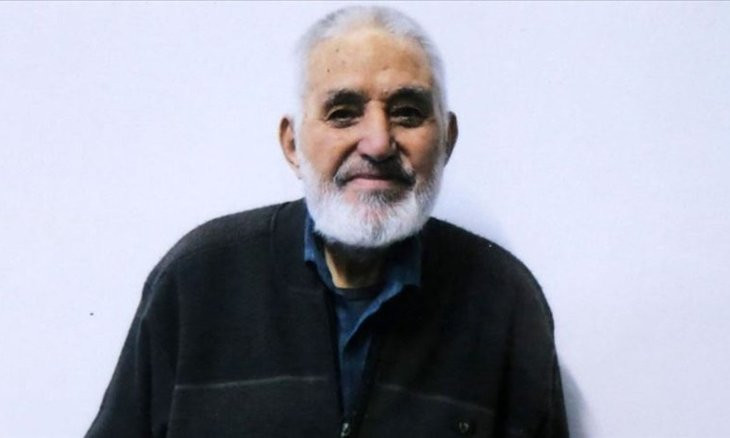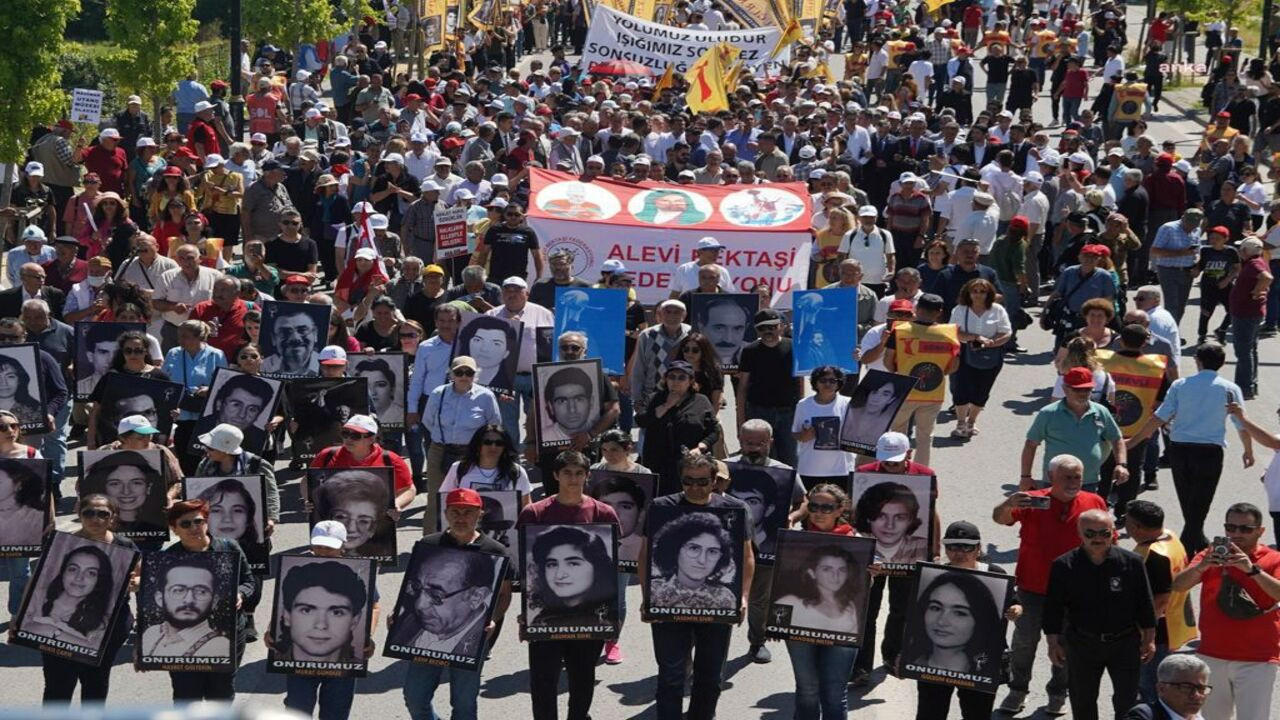Erdoğan pardons another man convicted of taking part in burning 35 people alive
President Recep Tayyip Erdoğan has pardoned Hayrettin Gül, who was sentenced to aggravated life imprisonment over the Sivas Massacre, citing the health problems that the 78-year-old man has been suffering from. The massacre took place when a mob set the Madımak Hotel in the Central Anatolian province of Sivas on fire on July 2, 1993, killing 33 intellectuals and two hotel personnel.
Duvar English
Turkish President Recep Tayyip Erdoğan on Sept. 6 pardoned a man named Hayrettin Gül convicted of taking part in a massacre in 1993 that resulted in the deaths of 35 people. The move was announced in the Official Gazette.
Hayrettin Gül was sentenced to aggravated life imprisonment over the Sivas Massacre, which took place when a mob set the Madımak Hotel in the Central Anatolian province of Sivas on fire on July 2, 1993, killing 33 intellectuals and two hotel personnel.
Erdoğan lifted the 78-year-old man's sentence due to the health problems that he has been suffering within the scope of the 16th subsection of the constitution's 104th article.
Gül was given the death penalty sentence before the abolishment of capital punishment in Turkey in 2002. His sentence was converted into aggravated life imprisonment after the abolishment.
Criticizing the move, main opposition Republican People’s Party (CHP) leader Kemal Kılıçdaroğlu said “While Erdoğan, who has no moral legitimacy, keeps our retired generals who have devoted their lives to this country and who are over 80 years old, in prison; ordered the release of a convicted murderer. Now tell me, where is the morality in that?”
Ahlaki meşruiyeti olmayan Erdoğan, bu ülkeye ömrünü vakfetmiş, 80 yaşının üstüne gelmiş emekli generallerimizi hapiste tutarken; suçu sabit bir katilin serbest bırakılmasını emretmiş. Şimdi söyler misiniz, ahlak bunun neresinde?
— Kemal Kılıçdaroğlu (@kilicdarogluk) September 6, 2023
Erdoğan previously pardoned Ahmet Turan Kılıç, who was sentenced to aggravated life imprisonment over the Sivas Massacre, similar to Gül.
There are dozens of sick prisoners in Turkey, suffering from serious illnesses.
In 1993, almost 15,000 people participated in the march towards the Madımak Hotel after Friday prayers in which radical Islamists chanted "Sivas will be the grave of secularists." Security forces did not intervene against the Islamist mob who waited in front of the hotel for hours and eventually set it on fire. The fire brigade also intervened late.
At the end of the long trial process, 33 defendants were sentenced to death and 14 defendants were sentenced to prison terms ranging up to 15 years. In 2002, the death penalty was abolished and 33 people were sentenced to life imprisonment. Eight key figures in the Sivas massacre escaped and disappeared in 1997.
Many of the defendants' lawyers have risen to parliamentary and ministerial positions in conservative right-wing parties.

 Erdoğan pardons man convicted of taking part in burning 35 people alivePolitics
Erdoğan pardons man convicted of taking part in burning 35 people alivePolitics Turkey commemorates victims of Sivas Massacre on 30th anniversaryDomestic
Turkey commemorates victims of Sivas Massacre on 30th anniversaryDomestic